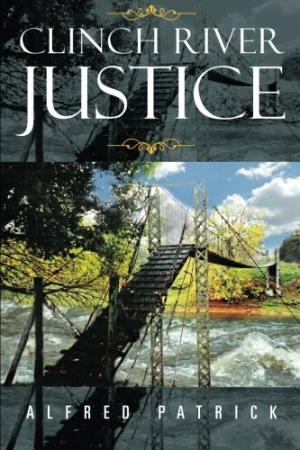Clinch River Justice
For Deputy Sheriff Charley Scott, his job at the sheriff’s office in Powell County, Virginia, “is to work for justice … justice, pure and simple.” His boss, Sheriff Hargis Fielding, tells him, “That’s a good answer. But I have to say this—in my experience, justice is hardly ever simple, and never is it pure. Keep to that line of thinkin’, though, and you’ll serve Powell County well.” Alfred Patrick’s captivating tale, Clinch River Justice, illustrates for readers how difficult and imperfect the pursuit of justice is in Powell County. Indeed, seven deaths occur over twenty-six months during the years 1942 to 1945.
Although the novel begins as a mystery, it evolves into an elaborate web of local history, family, world events, and psychological traumas. Overall, the story is well written and free of grammatical and typographical errors, as one might expect of an author who is a retired, well-respected academic. Patrick is also a life-long resident of the Appalachian area of Southwest Virginia where his novel is set and through which the Clinch River flows.
However, Patrick’s novel is too long, and needs editing. Some of the stories that one elderly character tells could easily be eliminated without harm to the progress of the plot or to the uniqueness of the character. Other details of family backgrounds could similarly be deleted without impeding the story or harming the integrity of the characters.
Nevertheless, several episodes are particularly well done. The opening scene with Charley and Sheriff Fielding searching for a body beneath the dilapidated bridge over the raging Clinch River certainly draws readers in. A more personal tale is shared with the poignant retelling of the loss at Pearl Harbor of Charley’s best friend, who is also his brother-in-law. For readers interested in fast-paced action and riveting excitement, there is a life-and-death struggle between Charley and the eldest of a trio of trouble-making brothers.
Adding depth to the novel are the credible traumatic effects on various characters as they commit or are affected by crimes in the story. Such incidents involve the Peeping Tom son of a murder victim, neighbors with shared responsibilities for the deaths of their spouses, the murder of an abusive husband, and a suicide at Drowning Creek that conjures up memories of how the body of water got its name. In between are layers of lustful jealousy, greed over nonexistent mineral rights, and various thought-provoking reminders that “justice is hardly ever simple, and almost never is it pure,” especially not in Powell County.
Reviewed by
Wayne Cunningham
Disclosure: This article is not an endorsement, but a review. The publisher of this book provided free copies of the book and paid a small fee to have their book reviewed by a professional reviewer. Foreword Reviews and Clarion Reviews make no guarantee that the publisher will receive a positive review. Foreword Magazine, Inc. is disclosing this in accordance with the Federal Trade Commission’s 16 CFR, Part 255.


